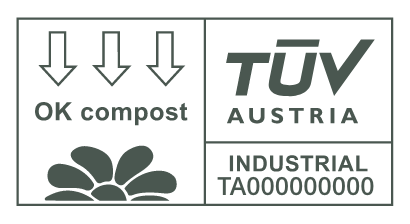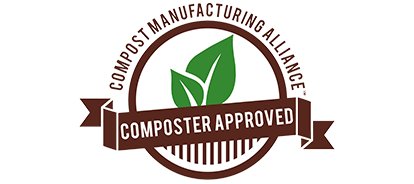
Vegware uses a variety of renewable plant-based materials to manufacture our product range.
In its finished form, Vegware packaging is compostable in commercial facilities, where accepted.
Have questions? Check out our materials FAQ
Polylactic Acid (PLA)
Compostable bioplastic derived from plant sugars. Glucose is extracted from milled corn. It is then fermented to produce lactic acid, which is processed into a polymer and made into pellets. PLA is used in our clear products like cold cups and deli containers, and to line our board-based products. CPLA is crystallised PLA, used when more heat resistance is needed, like with our lids and cutlery.
Bagasse
Made from a by-product of the sugarcane industry.
Bagasse is a stylish eco alternative to polystyrene suitable for hot and cold food. Made from reclaimed sugarcane, our bagasse uses the dry fibrous residue left once sugarcane has been pressed for juice. A high-heat, high-pressure process is applied to press and shape the fibers. Used to make our takeaway boxes, plates, and bowls.
NatureFlex
A clear film made from wood pulp. The wood is sourced from sustainably managed forestry. Cellulose fibres in wood pulp goes through a casting process and regenerates into a certified industrial and home compostable film called NatureFlex. Used for our clear bags and some of our products’ clear windows, it is greaseproof and suitable for hot and cold food.
Paper & card
Sustainably sourced paper and cardboard, using recycled content where we can. Uses include Vegware hot cups, soup containers, paper straws, Bon Appetit bowls, and various takeaway containers.
Inks
Certification
Vegware holds the deepest set of compostability certification in the sector. Our full product range can be commercially composted with food waste where accepted. Independent bodies have certified our products can break down in under 12 weeks in industrial composting facilities. The most widely used compostability standards are the European EN13432 and the American ASTM D6400. They are largely equivalent, and include the following elements:
- Biodegradation – materials turn to soil through microbial action at the same rate as cellulose (paper)
- Disintegration – the materials fall into small pieces
- Eco-toxicity – seeds can germinate in the resulting compost – i.e. it is useful for plant growth
- Heavy metals – the compost is safe to go onto land



Let us answer your questions about Vegware products
- What is Vegware made from?
- Vegware is made from plants using renewable, lower carbon, recycled or reclaimed materials. We use a variety of plant-based materials – visit Our materials page for more information.
- Is Vegware food safe?
- Vegware is certified food safe. We hold the market's most comprehensive food migration certification.
- Is Vegware oven safe? Can I microwave or freeze it?
- We encourage customers to request product samples, as each kitchen is different, so samples allow you to test Vegware with your menu offerings and see how they work in your ovens, microwaves, refrigerators and freezers. Products that are Vegware-approved for a commercial kitchen appliance, such as hot cabinets, are referenced in the product's description.
- Are Vegware products vegan?
- Our products are made from plants using renewable, lower carbon, recycled or reclaimed materials. We use synthetic glues to bind our materials and have confirmation that they do not contain animal by-products.
- Isn’t using corn for bioplastics taking up land that could be used to feed people?
- If half of the world’s plastic production switched to crop-based bioplastics, the industry would still only require 3% of the world’s cultivated land. Bioplastics are typically made from materials that are not suitable for human consumption. For example, producers do not use food grade corn in the manufacture, thus it can be grown on outlying agricultural land and not interfere with food production.
- How should I store Vegware products?
- Do not store Vegware near heat – for example not in direct sunlight or near an oven or radiator. Vegware is best stored at temperatures not more than 104°F / 40°C.
- Are Vegware products made in the US?
- Vegware is a global brand, operating across a range of markets. As such, our supply chain is spread across a range of territories including the US, UK and Asia. We manufacture our products close to the source of our raw plant-based materials, so that when transported, Vegware products are in their finished form.
- What's the shelf life for Vegware products?
- Generally speaking, Vegware products have a shelf life of up to one year.
